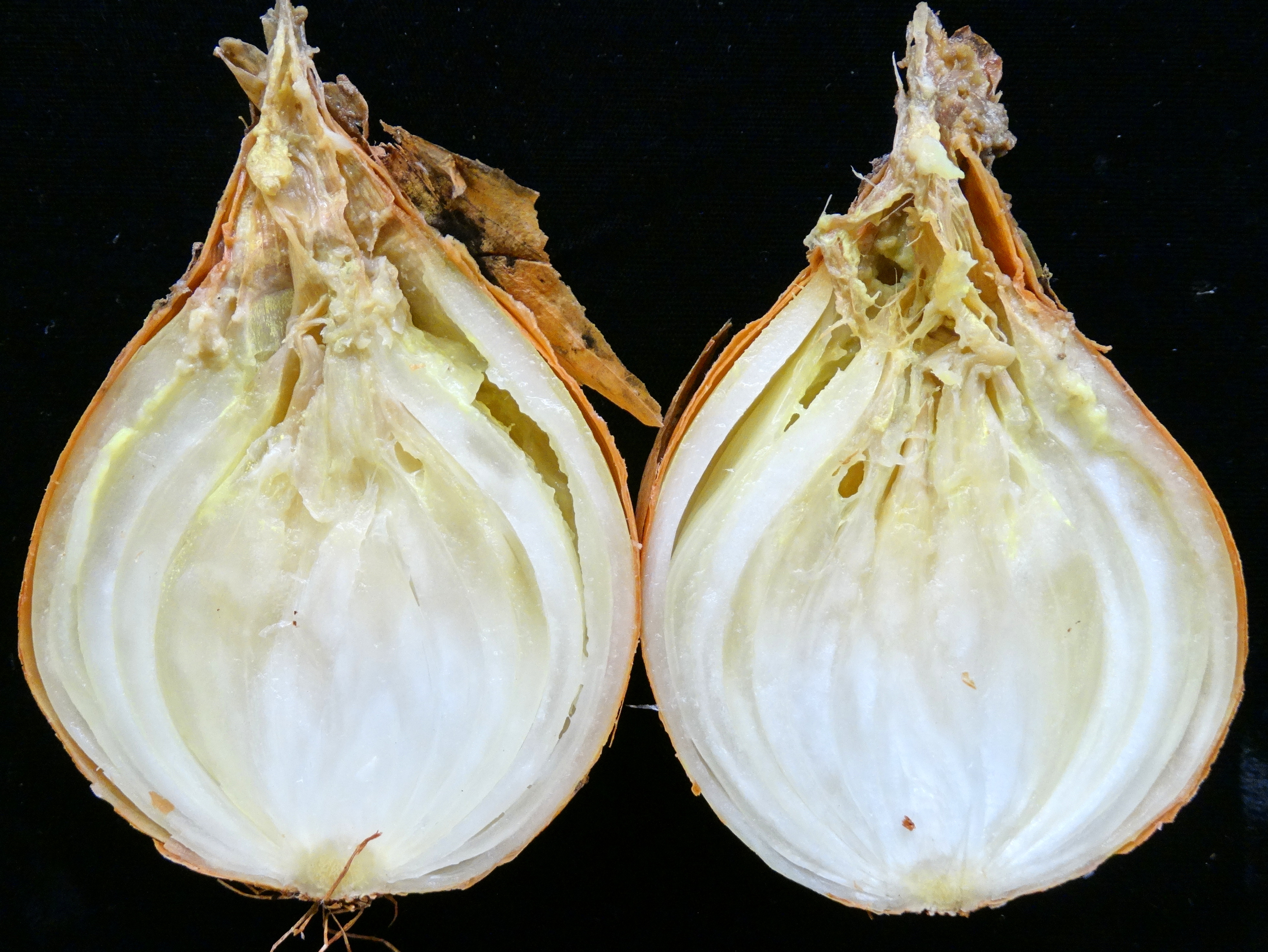Pectobacterium carotovorum on:
[Wikipedia]
[Google]
[Amazon]
 ''Pectobacterium carotovorum'' is a
''Pectobacterium carotovorum'' is a
Type strain of ''Pectobacterium carotovorum'' at Bac''Dive'' - the Bacterial Diversity Metadatabase
{{Taxonbar, from=Q164586 Bacterial plant pathogens and diseases Vegetable diseases Bacteria described in 1945 Enterobacterales
 ''Pectobacterium carotovorum'' is a
''Pectobacterium carotovorum'' is a bacterium
Bacteria (; singular: bacterium) are ubiquitous, mostly free-living organisms often consisting of one biological cell. They constitute a large domain of prokaryotic microorganisms. Typically a few micrometres in length, bacteria were amon ...
of the family Pectobacteriaceae
The ''Pectobacteriaceae'' are a family of Gram-negative bacteria which largely consist of plant pathogens. This family is a member of the order Enterobacterales in the class Gammaproteobacteria of the phylum Pseudomonadota. The type species of ...
; it used to be a member of the genus ''Erwinia
''Erwinia'' is a genus of Enterobacterales bacteria containing mostly plant pathogenic species which was named for the famous plant pathologist, Erwin Frink Smith. It contains Gram-negative bacteria related to ''Escherichia coli'', ''Shigella'', ...
''.
The species is a plant pathogen with a diverse host range
In biology and medicine, a host is a larger organism that harbours a smaller organism; whether a parasitic, a mutualistic, or a commensalist ''guest'' (symbiont). The guest is typically provided with nourishment and shelter. Examples include a ...
, including many agriculturally and scientifically important plant species. It produces pectolytic enzymes that hydrolyze pectin between individual plant cells. This causes the cells to separate, a disease plant pathologists term bacterial soft rot. Specifically, it causes beet vascular necrosis and blackleg of potato and other vegetables (hence the name ''carotovora'' – "carrot-eater"), as well as slime flux
Slime flux, also known as bacterial slime or bacterial wetwood, is a bacterial disease of certain trees, primarily elm, cottonwood, poplar, boxelder, ash, aspen, fruitless mulberry and oak. A wound to the bark, caused by pruning, insects, poo ...
on many different tree species. Currently, there are four described subspecies of ''P. carotovorum'' (''carotovorum, brasiliense, odoriferum'', and ''actinidiae'').
This bacterium is a ubiquitous plant pathogen with a wide host range (carrot, potato, tomato, leafy greens, squash and other cucurbits, onion, green peppers, African violets, etc.), able to cause disease in almost any plant tissue it invades. It is a very economically important pathogen in terms of post-harvest losses, and a common cause of decay in stored fruits and vegetables. Decay caused by ''P. carotovora'' is often referred to as "bacterial soft rot" though this may also be caused by other bacteria. Most plants or plant parts can resist invasion by the bacteria, unless some type of wound is present. High humidity and temperatures around 30 °C favor development of decay. The cells become highly motile near this temperature (26 °C) when fructose is present. Mutants can be produced which are less virulent. Virulence factors include: pectinases, cellulases, (which degrade plant cell walls), and also proteases, lipases, xylanase
Endo-1,4-β-xylanase (EC 3.2.1.8, systematic name 4-β-D-xylan xylanohydrolase) is any of a class of enzymes that degrade the linear polysaccharide xylan into xylose, thus breaking down hemicellulose, one of the major components of plant cell ...
s, and nucleases (along with the normal virulence factors for pathogens – Fe acquisition, LPS integrity, multiple global regulatory systems).
Management
KENGAP, partners of the CABI-led programme, Plantwise have several recommendations for the management of ''P. carotovora'' including; washing hands and disinfecting tools regularly during and after harvesting, avoiding harvesting in warm and moist conditions. They also recommend frequent irrigation during head formation should be avoided to allow heads to dry and planting on ridges, raised beds or well drained soils prevents water logging around the plants. Plantwise partners also recommend thorough washing and disinfection of crates for to prevent post-harvest losses and that crop rotation with leguminous crops and cereals is practiced.Sources
References
Further reading
*External links
Type strain of ''Pectobacterium carotovorum'' at Bac''Dive'' - the Bacterial Diversity Metadatabase
{{Taxonbar, from=Q164586 Bacterial plant pathogens and diseases Vegetable diseases Bacteria described in 1945 Enterobacterales